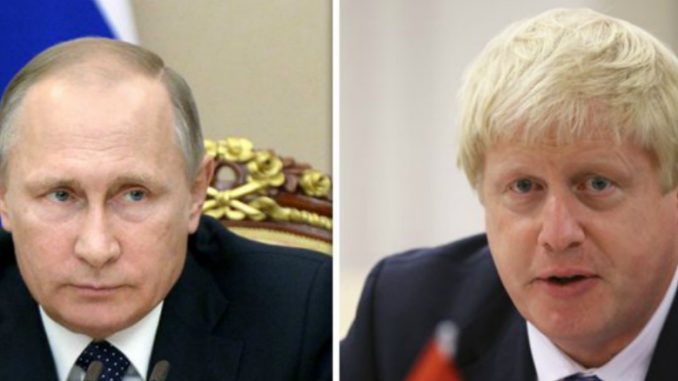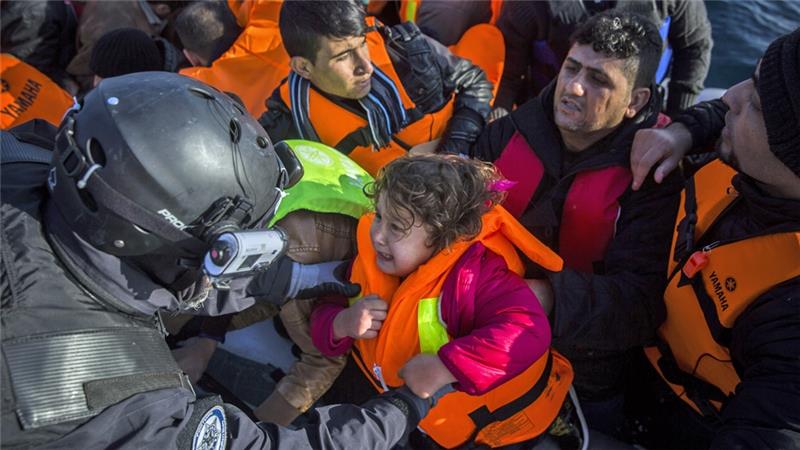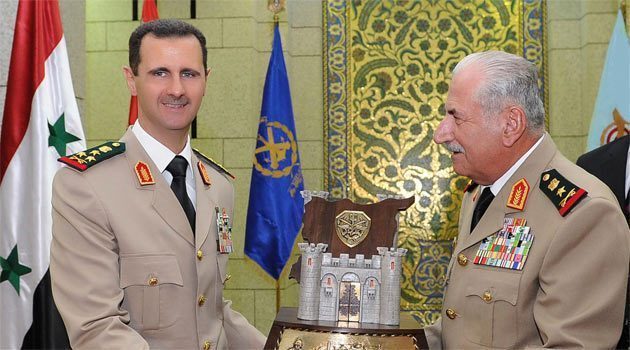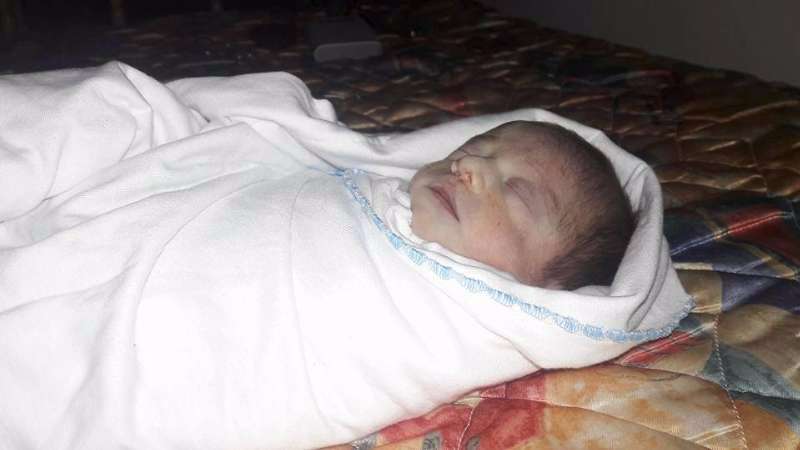
The UK seems to be concentrating on finding a solution for Syria’s crisis even if this means worsening its relations with Russia, as it urged Putin again to abandon Assad and accept a new deal warning the US may strike again.
More than 87 civilians were killed in Syria in a new chemical attack carried out by Assad regime’s air force on the rebel-held Idlib province on April 4.
Medical sources said that more than 300 other civilians were injured in this attack, and many of them were transferred to hospitals near the Turkish borders or inside Turkey, where poison tests were made.
In a sharp escalation of the U.S. military role in Syria, two U.S. warships fired dozens of cruise missiles from the eastern Mediterranean Sea at the airbase controlled by Assad regime forces from which the attack as carried out.
Trump ordered the strikes just a day after he pointed the finger at Assad for this week’s chemical attack.
“Tonight I ordered a targeted military strike on the airfield in Syria from where the chemical attack was launched.”
“Years of previous attempts at changing Assad’s behavior have all failed and failed very dramatically,” Trump said on Thursday.
Russia condemned the strikes, saying Washington’s action would “inflict major damage on US-Russia ties”, according to Russian news agencies.
But the US allies, especially the UK, backed this move, calling for more pressure on Assad regime and blaming Russia for backing Assad accusing Putin of taking part in killing the Syrian civilians.
Tension raises with Russia
Britain backed this move and said the US action was an appropriate response to the “barbaric chemical weapons attack” launched by the Syrian government, according to a spokesman for Prime Minister Theresa May.
“The U.K. government fully supports the U.S. action, which we believe was an appropriate response to the barbaric chemical weapons attack launched by the Syrian regime and is intended to deter further attacks,” a British government spokesman said.
The British government also made declarations against the Russian intervention in Syria, raising tension with Moscow over the Syrian issue for the second time in a few months.
Boris Johnson, the British foreign secretary, has canceled a planned trip to Moscow after the US launched missile strikes on Syria and in the wake of “Russia’s continued defense of the Assad regime”.
The British foreign secretary had been due to fly to Russia on last Monday for talks with his direct counterpart, the first such meeting since 2012. But the Foreign Office confirmed on Saturday that Johnson would no longer make the trip because “developments in Syria have changed the situation fundamentally”.
He also called for sanctions against Syria and Russia in the G7 meeting last week, but the Germans and Italians refused to agree until an investigation has been carried out into who was to blame for the nerve gas attack in Idlib province.
A new deal offered, Assad regime slammed
The British Foreign Secretary has offered Russia a chance to end the Syrian crisis, saying “they still have time to be on the right side of the argument”.
Johnson also branded Bashar al-Assad an “arch-terrorist” and pledged that the UK and allied forces would gather evidence for “war crimes prosecutions for those responsible”.
In an article for The Telegraph, his first wide-ranging remarks since the row, Johnson appealed to Moscow to help stop the killing.
He said: “Assad uses chemical weapons because they are not only horrible and indiscriminate. They are also terrifying.
“In that sense, he is himself an arch-terrorist, who has caused such an unquenchable thirst for revenge that he can never hope to govern his population again.
“He is literally and metaphorically toxic, and it is time Russia awoke to that fact. They still have time to be on the right side of the argument.”
Johnson said there was no doubt that a bomb dropped from two Syrian U-22 planes which “took off from an airbase where chemical weapons have been stored” were behind the attack.
He said: “British scientists have analyzed samples from the victims of the attack. These have tested positive for sarin or a sarin-like substance.
“The UK, the US, and all our key allies are of one mind: we believe that this was highly likely to be an attack by Assad, on his own people, using poison gas weapons that were banned almost 100 years ago, under the 1925 Geneva protocol.”
Russia hosted foreign ministers from Iran and Syria late last week in a show of support for Assad’s government days after the US missile strike.
The Russians could “join a coalition of more than 60 countries in the fight against Daesh, to maintain their strategic interests in Syria, with the prospect of more productive relations with President Trump and in the knowledge that the West will eventually help rebuild the country”, Johnson said.
He added: “In exchange, they should commit to producing a real ceasefire, to end the use of chemical weapons and barrel bombs, and to bring about a political settlement that relieves the Syrians of the tyranny of Assad.
“The Russians saved him. The Russians can help remove him, through a carefully supervised transition process that preserves key institutions of state – and usher in a stable and pluralist future for the country.”
The US may strike again
Johnson received a boost late last week when his French counterpart Jean-Marc Ayrault jointly urged the international community to make sure those responsible for the Syrian chemical weapon attack are held to account.
Johnson’s alliance with Ayrault was seen as a sign that he is working to build support, having appeared isolated over the issue of sanctions after the G7 meeting.
Johnson also put Assad on notice that the US stood ready to launch more attacks.
He said: “America has struck and could, of course, strike again. That alone creates an ambiguity that should prey on the guilty minds of Damascus.”
Johnson said it was vital that the Russian people understood “the horrific nature of the regime they are backing in terms they cannot fail to understand”.
He added that the current crisis “is, in fact, an opportunity for Russia. Moscow has reached the high point of its influence in Syria.
“They still have innumerable rebel groups to subdue, and they find themselves in a league of super-villains with Hezbollah and Assad. Is that what they want?”
He said that “now is surely the moment for them to make a sensible compromise”.
Johnson does not rule out further British military intervention in Syria but stresses this is unlikely given the fall-out from the British and American invasion of Iraq in 2003.
He said: “We all know that we are a very long day’s march from any large-scale deployment, any major western engagement in Syria.
“The lessons of the 2003 invasion of Iraq are painful, and they understandably affect politicians and public on both sides of the Atlantic.
“Which means that we should instead focus relentlessly on the reality of what Assad has done: killed innocents with a banned and abominable weapon.”



